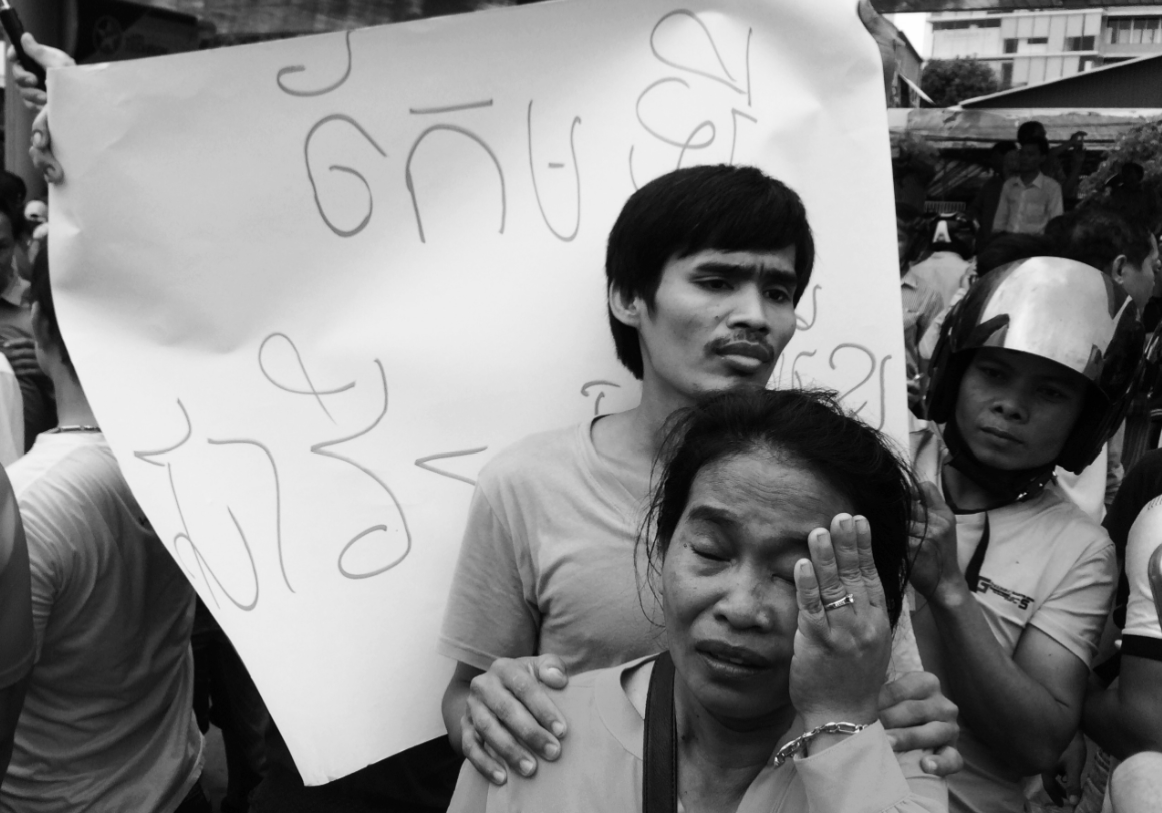Today, in advance of the second anniversary of the killing of political commentator and human rights defender, Kem Ley, the ICJ reiterates its call for the creation of a independent and impartial Commission of Inquiry to investigate his killing.
The ICJ remains deeply concerned at the apparent lack of progress in investigating the case, as well as the inadequacy of the investigation and prosecution of Oeuth Ang, the only person yet charged or convicted in relation to Kem Ley’s killing.
“The trial of Oeuth Ang left many unanswered questions about the investigation and the killing itself which Cambodia has an duty to resolve as part of the family and public’s right to know the truth,” said Kingsley Abbott, Senior Legal Adviser at the ICJ, who attended the trial.
“The fact that the killing occurred against the backdrop of escalating attacks against human rights defenders and the political opposition and in the context of a history of well-documented apparent extra-judicial killings makes the establishment of an independent and impartial Commission of Inquiry all the more pressing.”
On 7 July 2017, ahead of the one-year anniversary of Kem Ley’s killing, the ICJ and other organizations released a joint letter highlighting crucial concerns about the lack of progress in the investigation of his case, and calling on the Cambodian Government to establish a Commission of Inquiry to carry out an independent, impartial, effective and transparent investigation in line with international law and standards.
These include the International Covenant on Civil and Political Rights and the revised Minnesota Protocol on the Investigation of Potentially Unlawful Death (2016).
Background
At approximately 08:30 on 10 July 2016, Kem Ley, a prominent political commentator and human rights defender, was shot and killed at a petrol station on Monivong Boulevard in Phnom Penh.
Soon afterwards, Cambodian police arrested a suspect approximately two kilometers from the crime scene. The suspect identified himself as “Chuob Samlab”, from Banteay Meanchey province. “Chuob Samlab” means “Meet to Kill” in Khmer.
In a leaked video, “Chuob Samlab” reportedly “confessed” to shooting Kem Ley over a debt the political commentator allegedly owed him – a fact reportedly disputed by Kem Ley’s widow and “Chuob Samlab”’s own wife.
“Chuob Samlab” was later identified as Oeuth Ang from Siam Reap province, according to identity records.
On 23 March 2017, the Phnom Penh Municipal Court found Oeuth Ang guilty of the premeditated murder of Kem Ley on 10 July 2016 and sentenced him to life imprisonment.
The ICJ observed the trial which took place on 1 March 2017, following which it identified eight significant gaps in the investigation which had not been adequately addressed at trial.
Following the verdict, Oeuth Ang’s lawyer told journalists the court had created a new case-file to investigate two men named Pou Lis and Chak who may be relevant to the killing of Kem Ley.
Very little information has been revealed publicly about these possible new case-files.
Oeuth Ang appealed his sentence and, on 4 May 2018, the Court of Appeal reportedly heard the appeal.
There are no reports yet of a judgment being delivered.
Pursuant to international law binding on Cambodia, including the International Covenant on Civil and Political Rights (ICCPR) to which Cambodia is a State Party, Cambodia has a duty to promptly, independently, impartially, and effectively investigate all deaths suspected of being unlawful.
Investigations must seek to identify not only direct perpetrators but also all others who may have been responsible for criminal conduct in connection with the death.
Principle 11 of the UN Principles on the Effective Prevention and Investigation of Extralegal, Arbitrary and Summary Executions calls for the establishment of a Commission of Inquiry when ‘the established investigative procedures are inadequate because of lack of expertise or impartiality, because of the importance of the matter or because of the apparent existence of a pattern of abuse, and in cases where there are complaints from the family of the victim about these inadequacies.’
Read also
ICJ et al, ‘Cambodia: request to create a commission of inquiry into the killing of Kem Ley’
ICJ, ‘Cambodia: Kem Ley’s killing demands immediate credible and impartial investigation’
Contact
Kingsley Abbott, ICJ Senior Legal Adviser, e: kingsley.abbott(a)icj.org





